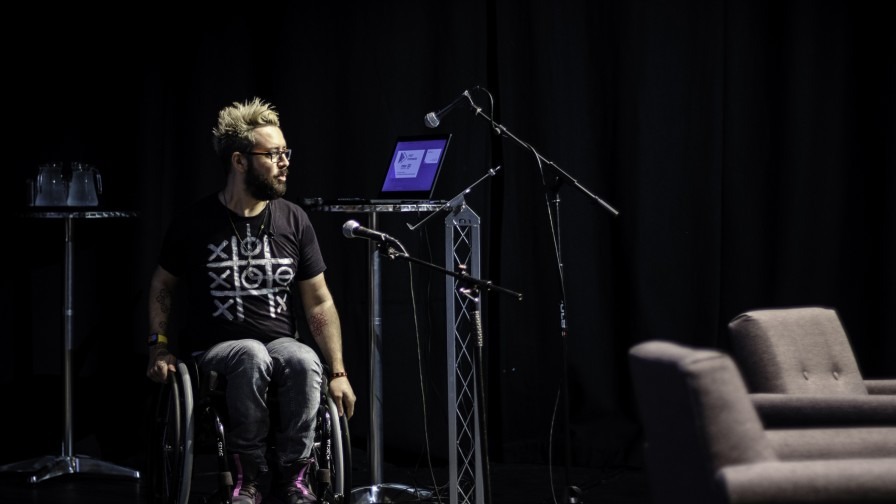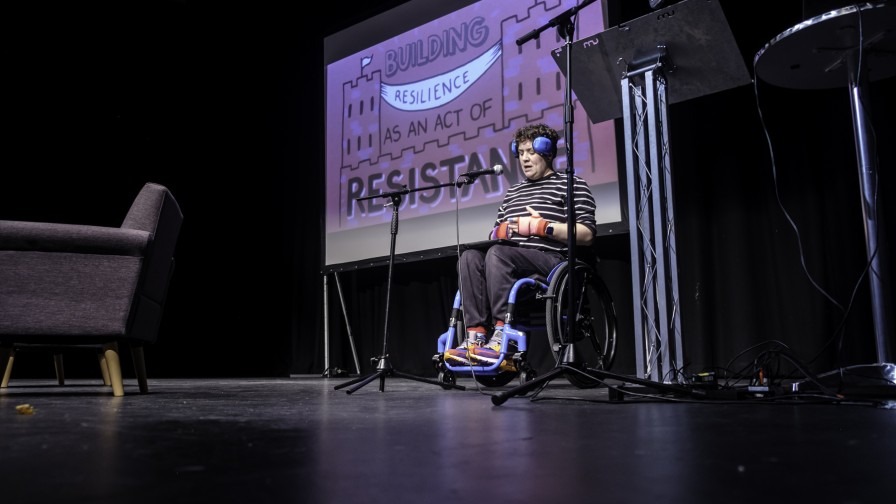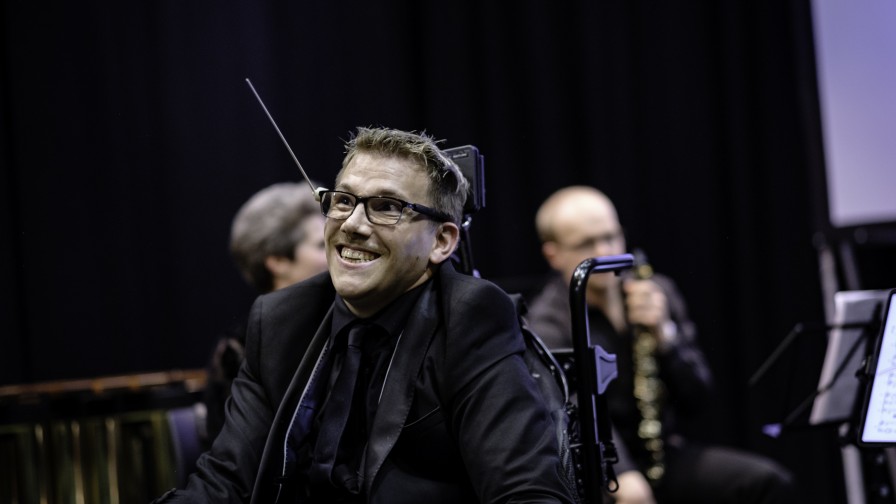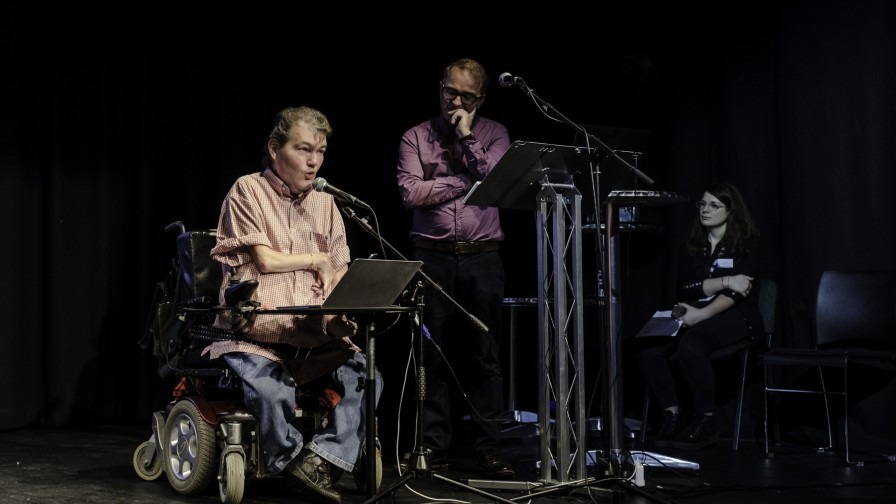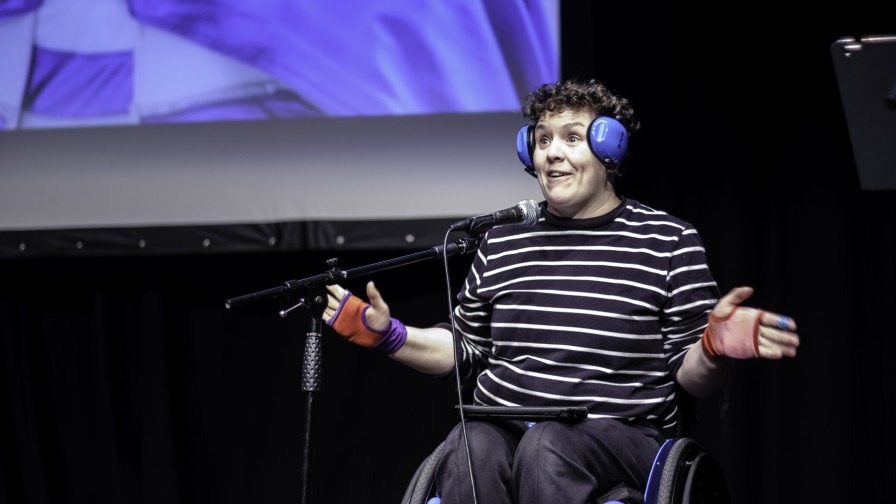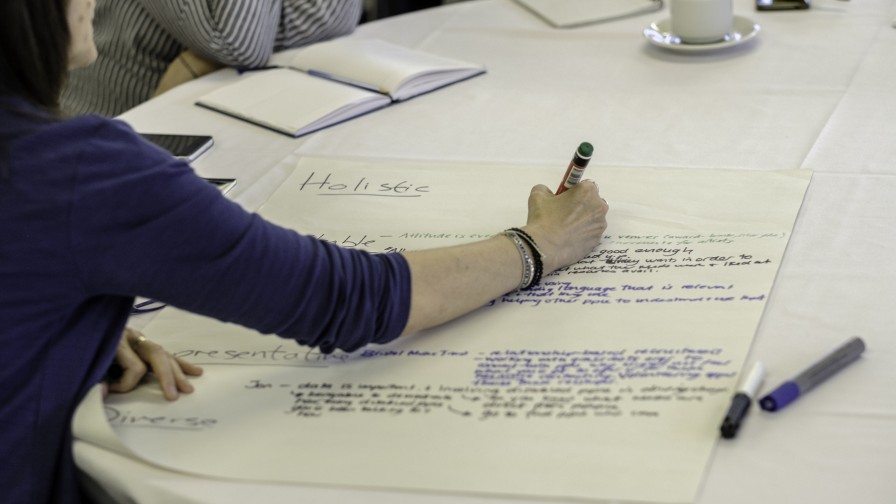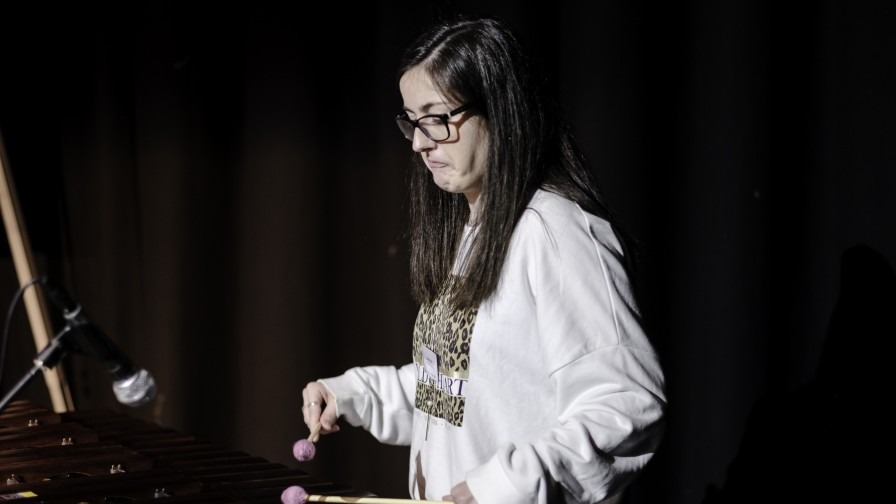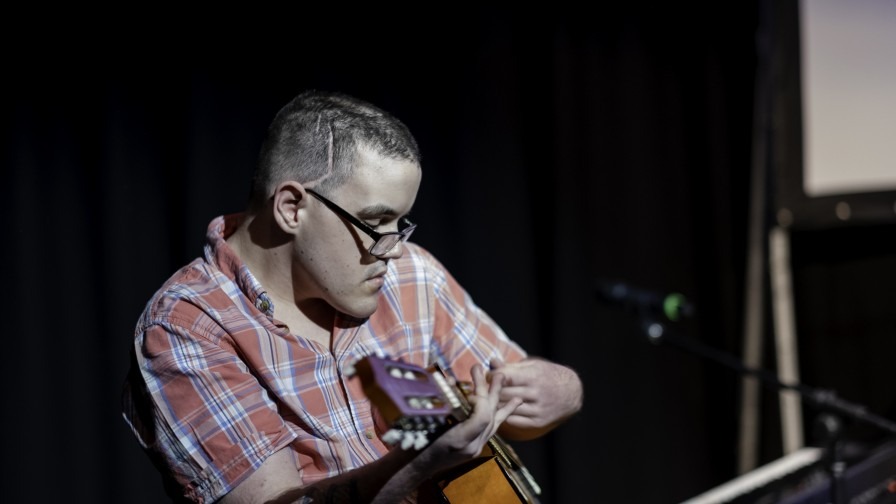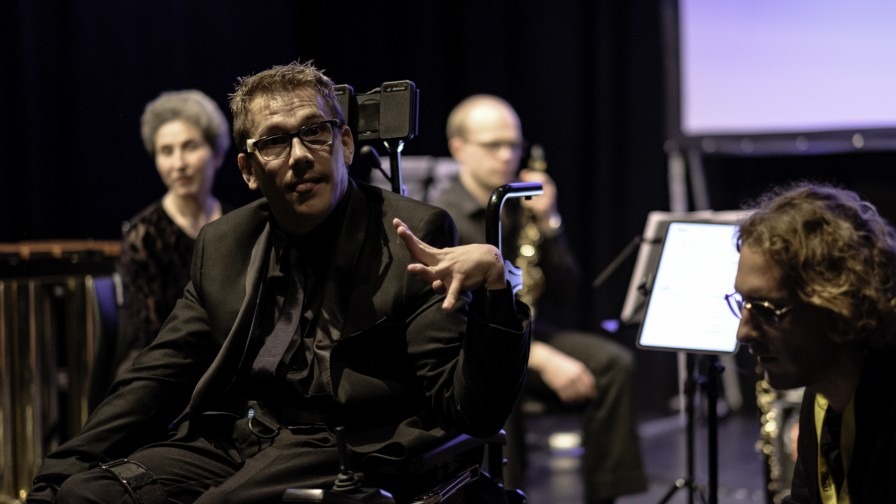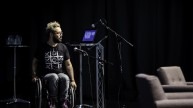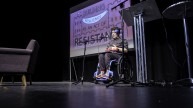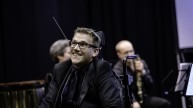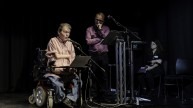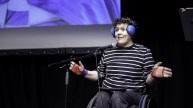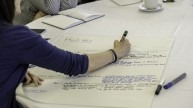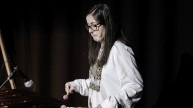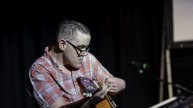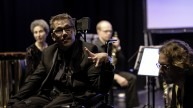A Roundup of Fast Forward Festival 2019
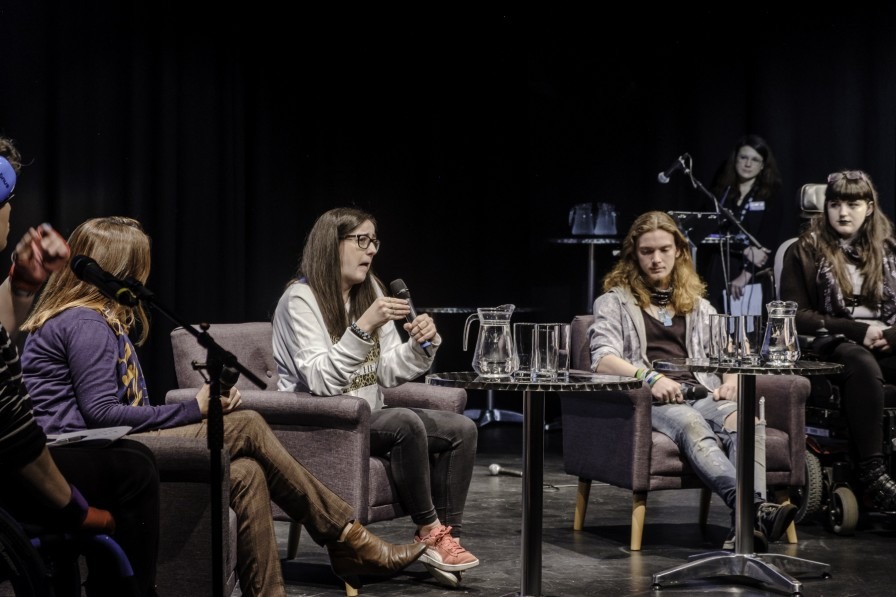
I’m Jen, and I’ve just started working as the new Administrator for MAC Makes Music. These are my thoughts and reflections following the National Disability Arts Fast Forward Festival 2019.
It seems quite clear that the music industry still needs to move away from the idea that musical inclusivity is about letting disabled people “have a go” at making music. That belief only fosters the idea of “us” and “them”. Fast Forward Festival 2019 completely encapsulated what inclusivity should be because it was a relaxed environment from the very beginning, where the focus was on the quality of the music and the ideas that were being shared, without any sense of hierarchy.
Kris Halpin was absolutely the right person to host. Musician, technologist and developer of the Mi.Mu gloves, he spoke honestly about his lived experience of working in the music industry. Incidentally, he’s a disabled artist, but what stands out most is his wonderfully dry sense of humour. ‘I may be in a wheelchair’, he said, ‘but if I make crap music, then tell me to make something better.’ He set the tone for a day of truly entertaining presentations and performances from a diverse selection of artists, venue representatives and stakeholders.
Jess Thom was first to the floor. She’s a theatre-maker and a comedian, and she also has Tourettes. She spoke about how she takes ownership of her tics – and why shouldn’t she? They result in some of the most hilarious, poetic and surreal imagery I’ve ever come across. After hearing Jess speak, I could immediately see that disability enriches the arts and, without doubt, deserves wider engagement. Those who identify as disabled often demonstrate a wealth of creativity in order to work with their own needs, so why don’t we see more disabled artists in the mainstream? It must be to do with our unwillingness to make changes to what is considered the norm. Jess presented us with a few quite sobering statistics:
67% of British people feel uncomfortable talking to disabled people (Scope 2014).
Disabled people make up just 4% of the workforce in Arts Council England’s National Portfolio Organisations.
There’s clearly a gap in our understanding of each other, but she made an excellent point that it really shouldn’t be too difficult to make improvements. How difficult can it really be to get to know each other better? How about if we use comedy and creativity to break those barriers? ‘Change isn’t always a battle’, she declared, an idea that was later echoed by Lisa Tregale from Bournemouth Symphony Orchestra, who said that ‘inclusion is not a project at BSO, it’s what we are.’
The BSO are currently working with conductor James Rose who leads their Resound Ensemble of disabled musicians. You may have seen James conducting at the BBC’s Relaxed Prom last year with his famous head baton. With the understanding that ‘it’s societal norms and processes that disable people, and not the people themselves’, Lisa said, the BSO have well and truly began their journey integrating disabled and non-disabled artists in order for us to learn from each other. We were treated to a performance from BSO Resound later that evening, and James’ personality skilfully shone through the music. The message from Lisa, Jess and James was clear: too many people are still too afraid of not understanding disability. We need to normalise the existence of disability in order to develop inclusion.
Jess Thom also encouraged us to ‘nurture unpredictable outcomes’. By opening ourselves up to the inevitability of learning from different experiences of disability, we all increase our potential of developing our creativity. Brendan, a member of the National FLOW Collective, a group of talented musicians facing disabling barriers to a career in music, reiterated this idea in his vignette. He implored those in a position of power to be aware of their complacency towards the notion that those without disabilities can access more opportunities to work in music because they might seem easier to work with. By accepting the challenges of disability and embracing its unpredictability, we end up with bands like SWITCH and The FLOW Collective, who both performed with such rawness and honesty, they sent shivers down my spine. And Sarah Fisher, whose professionalism, wit and confidence, was a real inspiration to me as an aspiring performer myself.
I met so many incredible people at Fast Forward Festival who are proving that creating more opportunities with disabled musicians enriches the arts for everyone – I wish I had space to give everyone a mention. There was certainly a shared feeling that it’s the people who weren’t there on the day that need more convincing, but this shouldn’t dampen our hopes of a musically inclusive England, as Siggy Patchitt from Bristol Music Trust reminded us at the end of the day. Siggy spoke about ‘Inclusive Excellence’, which he defined as a constant process of learning. Ironically, it never seems to get any closer to us, but that’s because it’s not a goal, it’s a journey. Good practice is about being interested and adaptable. ‘Inclusive Excellence is one concept, not two’, he said. ‘You can’t have excellence without inclusion, and if you’re inclusive, you will achieve excellence.’ As I left the auditorium and overheard snippets of conversation, there was a definite sense that Jess Thom’s slogan from earlier that morning had come back to the fore: listen up stakeholders, ‘Access is an Asset’!
Jen Loffman, MAC Makes Music Administrator
Photo credit: Will Pace, Paper Wolf Productions


